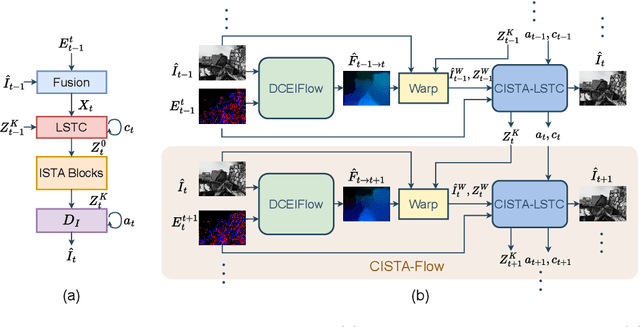Enhanced Event-Based Video Reconstruction with Motion Compensation
Paper and Code
Mar 18, 2024
Deep neural networks for event-based video reconstruction often suffer from a lack of interpretability and have high memory demands. A lightweight network called CISTA-LSTC has recently been introduced showing that high-quality reconstruction can be achieved through the systematic design of its architecture. However, its modelling assumption that input signals and output reconstructed frame share the same sparse representation neglects the displacement caused by motion. To address this, we propose warping the input intensity frames and sparse codes to enhance reconstruction quality. A CISTA-Flow network is constructed by integrating a flow network with CISTA-LSTC for motion compensation. The system relies solely on events, in which predicted flow aids in reconstruction and then reconstructed frames are used to facilitate flow estimation. We also introduce an iterative training framework for this combined system. Results demonstrate that our approach achieves state-of-the-art reconstruction accuracy and simultaneously provides reliable dense flow estimation. Furthermore, our model exhibits flexibility in that it can integrate different flow networks, suggesting its potential for further performance enhancement.
 Add to Chrome
Add to Chrome Add to Firefox
Add to Firefox Add to Edge
Add to Edge